Western Sydney University tops global sustainability impact ranking for groundbreaking third year
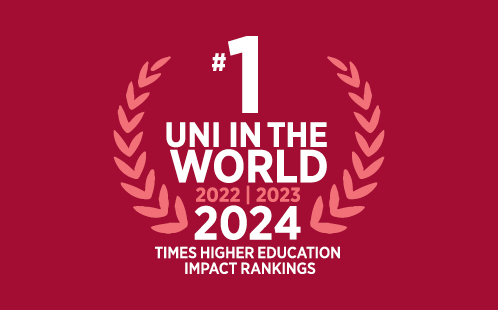
Western Sydney University has been named number one in the world in the Times Higher Education (THE) University Impact Rankings(opens in a new window) released today, topping the world’s leading university sustainability ranking for an unprecedented three years in a row.
Western Sydney University placed first overall in Australia and internationally for its social, economic and environmental impact in the prestigious annual rankings, competing against more than 1,900 higher education institutions from 125 countries.
This follows the University’s number one results in the 2022 and 2023 THE University Impact Rankings – the first time any University in the world has achieved such a triple feat.
The Times Higher Education University Impact Rankings is the main global ranking system that comprehensively assesses universities on their commitment to the United Nations’ 17 Sustainable Development Goals (SDGs). Rankings are based on universities’ teaching, research, outreach and stewardship.
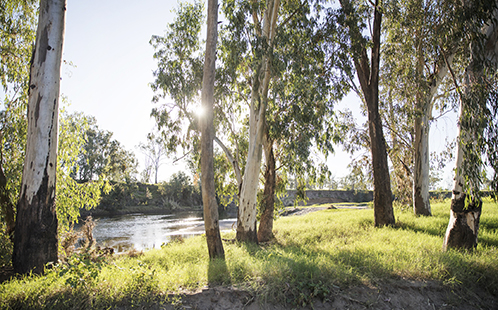
As well as the overall world number one ranking, the University was recognised in the following SDG categories:
- 1st in the world for SDG 5 Gender Equality
- 3rd in the world for SDG 15 Life on Land
- 4th in the world for SDG 13 Climate Action, SDG 12 Responsible Consumption and Production, and SDG 17 Partnerships for the Goals
- 8th in the world for SDG 10 Reduced Inequalities
- 9th in the world for SDG 6 Clean Water and Sanitation
Interim Vice-Chancellor and President, Professor Clare Pollock, said Western Sydney University is immensely proud of the exceptional result and warmly congratulated everyone across the University community on the achievement.
“Delivering positive and meaningful community impact sits at the heart of everything we do at Western Sydney University. For 35 years it has been core to our mission, inspiring and motivating us to improve people’s lives and to be a force for change,” said Professor Pollock.
“It is a remarkable and defining moment for an Australian university to be recognised as number one in the world in such a highly competitive global rankings system for three years in a row.
“It is testament to the dedication of all our staff, students, researchers and partners who have worked hard over many years to make a positive difference. I congratulate everyone across our University on this stellar achievement, which reflects highly on the positive impact that the Australian university sector delivers for our communities more broadly.”
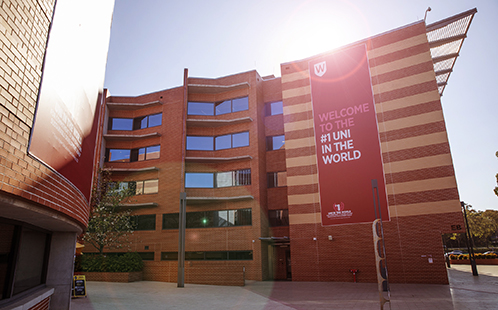
Professor Pollock said the University’s teaching, research and international partnerships are fully aligned to the UN’s Sustainable Development Goals 2030 (SDGs), which are embedded across all the University’s operations.
“For Western Sydney University, the Sustainable Development Goals are more than aspirational – they underpin our strategic direction, institutional values and organisational culture,” said Professor Pollock.
“The SDGs are the driving force behind our action plans and can be seen right across our teaching, research, campus operations and engagement, inspiring collaborations between students, staff and our community partners to tackle complex challenges such as climate transitions and social justice.
“This means being at the forefront of local and global issues and co-creating practical, and sustainable solutions, whether it be shaping our teaching to develop the next generation of highly-engaged thought leaders and citizen scholars, or being an anchor institution that is driving social and economic transformation under way in our own Western Sydney region.”
Professor Pollock said it was particularly pleasing that for the second year in a row the University has achieved a global ranking of first in the world for progress on Gender Equality. Western Sydney University has a long history of championing efforts to increase the representation of women in leadership roles, reducing the gender pay gap and promoting workplace flexibility.
The University’s Decadal Strategy Sustainability and Resilience 2030 showcases more than 50 long term actions that put policies into practice with the University on track to meet its completion targets by 2030.
“The Strategy’s digital engagement platform also provides a great way for our communities to partner with us to actively participate and co-design solutions on our environmental stewardship and ongoing sustainability efforts,” said Professor Pollock.
“For example, here in Western Sydney our research projects are tackling issues such as urban heat, housing sustainability and affordability, and climate resilience that are facing our region.
“On the global stage, our world-leading education and transformative research programs and collaborative international partnerships are delivering practical solutions to challenges like gender equality, reducing inequalities and, food and water security.”
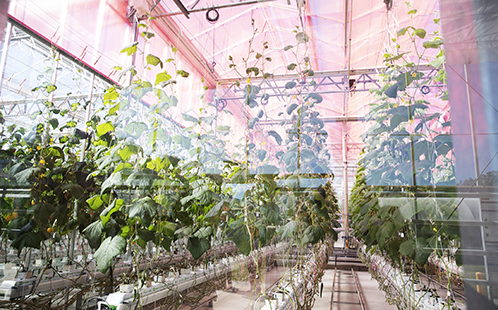
Professor Pollock said the University has implemented many practical measures to reduce its carbon footprint across its Australian campuses including all electricity being 100 per cent GreenPower accredited, rolling out a network of electric vehicle charging stations, and utilising innovative waste management practices to divert 89 per cent of campus waste away from landfill.
“We have achieved our ambitious target to be Climate Active certified as carbon neutral for our business operations by 2023 and we are well on our way to being certified climate positive by 2029,” Professor Pollock said.
“Most importantly, our learning and teaching initiatives like our Sustainability Graduate Attribute are preparing our future graduates with capabilities to contribute to a more sustainable, diverse and socially-just world.
“As a university, it is vital we encourage and equip our future leaders with critical-thinking and problem-solving skills so they too can carry on the work of our communities and be a force for positive change and social good.”
Ends
12 June 2024
Our Impact
A world leader for promoting gender equality and addressing inequality

For the second year in a row Western Sydney University has achieved a global ranking of first in the world for progress on Gender Equality.
We have a long history of championing efforts to increase the representation of women in leadership roles, reducing the gender pay gap and promoting workplace flexibility.
For 20 years, the University has been recognised as an Employer of Choice for Gender Equity, and in 2023 was awarded the prestigious SAGE Athena Swan Cygnet Award.
The Cygnet Award for Flexible Work is an important milestone for the University’s participation in the SAGE Athena Swan initiative – a national accreditation and awards program for gender equity, diversity and inclusion in the higher education sector.
This recognition follows our Athena Swan Bronze Institutional Award in 2020 for our work promoting gender equity across Science, Technology, Engineering, Mathematics and Medicine (STEMM).
The University’s Women in STEM Education (WiSE) Program also proudly supports the career development of identifying women studying in the areas of science, technology, engineering and mathematics (STEM).
Almost half of the current commencing female students and graduates are women.
Women also comprise:
> 63 per cent of all staff
> 45 per cent of senior academic staff
> 61 per cent of the Board of Trustees members.
Ensuring more people, no matter what their background, have the chance to go to university has been part of the University’s mission for 35 years.
Western Sydney University is a national leader when it comes to Increasing higher education participation, particularly among those sections of the community that are traditionally under-represented.
Western Sydney University draws students from more than 160 different countries and cultures. More than half of our students are the first in their family to attend university, and represent a higher than sector average low-socioeconomic circumstances.
Our region also has the most significant urban populations of Aboriginal and Torres Strait Islander peoples, and we actively work to support their aspirations.
We celebrate all of the diverse and rich cultural communities that give our campuses their energy and vibrancy, and strive to create an inclusive, safe and respectful place for study and work.
Our Ally Network also has over 250 staff and student volunteers from across the University committed to creating an inclusive and respectful culture for LGBTIQ community members.
Developing the next generation of thought leaders and citizen scholars

Providing students with immersive and empowering learning opportunities is a major part of the student experience at Western Sydney University and its commitment to the UN’s Sustainable Development Goals (SDGs).
The University’s learning and teaching initiatives, such as the Sustainability Graduate Attribute, are preparing future graduates with capabilities to contribute to a more sustainable, diverse and socially-just world.
The Australian Government’s New Colombo Plan Mobility Program (NCP) also provides funding to support undergraduate students to participate in semester-based or short-term study, internships, mentorships, practicums and research in locations across the Indo-Pacific region.
Through the NCP, more than 340 Western Sydney University students travelled to 11 countries last year, including China, Fiji, Hong Kong, India, Indonesia, Japan, Philippines, Singapore, South Korea, Taiwan and Vietnam.
NCP projects led by the University’s students strongly align with its commitment to sustainability. For example, Western Sydney University science students were given the opportunity to engage with a local Indigenous community of Setulang in Borneo, with a focus on the conservation of the region’s primary rainforest.
Connecting with the local community to experience their culture through homestays, the students were able to understand their ecotourism practices, and conducted various research projects to measure the effectiveness of this conservation strategy on local biodiversity, while camping in the remote rainforest.
An unwavering commitment to sustainability across all our operations
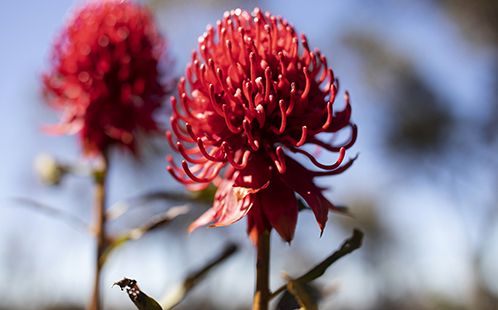
For Western Sydney University, the Sustainable Development Goals are more than aspirational – they underpin our strategic direction, institutional values and organisational culture.
The SDGs are the driving force behind the University's action plans and can be seen right across our teaching, research, campus operations and engagement.
On a local level, the University has a 20-year commitment to water reuse and research under the Hawkesbury Recycling Scheme, with an ambitious goal to see 60 per cent of water use coming from non-potable sources on all campuses by 2025.
Recycled water and harvested stormwater are used extensively on Western’s Hawkesbury campus for a range of uses, along with rainwater being used for toilet flushing and irrigation in some of the buildings in Penrith, Parramatta, and Campbelltown campuses.
15,000 new trees have also been planted at Hawkesbury in partnership with Greater Sydney Landcare, with a focus on restoring nature.
The University has implemented many practical measures to reduce its carbon footprint across our Australian campuses including all electricity being 100 per cent GreenPower accredited, reducing our campus emissions intensity on the Australian electricity grid.
With nine electric vehicle stations established at our campuses, we encourage our staff and students to be more conscious and practice sustainable commuting.
We are also proud that by utilising innovative waste management practices, that 89 per cent of campus waste is diverted away from landfill.
It’s meant that we’ve achieve our ambitious target to be Climate Active certified as carbon neutral for our business operations by 2023, and we are well on our way to being certified climate positive by 2029.
Our campus network is a sector leader for the number of green-star building projects and campus precincts.
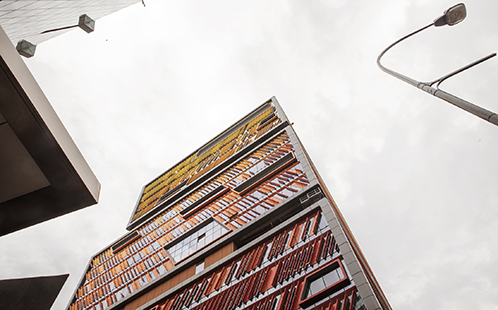
Four of our campus buildings are rated 6-star – including the newest $340 million high-rise Bankstown City campus. These projects incorporate the very best of contemporary teaching and learning design, accessible public transport and green-star rated sustainability features, including water management, energy efficiency and environmental impact reduction.
Our world-leading research is also tackling issues such as urban heat, housing sustainability and affordability, and climate resilience – challenges that particularly impact the communities of our own Western Sydney region.
For example, University researchers are leading an expert team on a multi-award-winning transdisciplinary research project that addresses climate change impacts, specifically urban overheating. A partnership between the NSW Government, several universities and private industry, SIMPaCT (Smart Irrigation Management for Parks and Cool Towns) uses artificial intelligence and smart sensing technology to cool Bicentennial Park at Sydney Olympic Park for residents and visitors.
While on a global stage our researchers are having a profound impact working to address issues such as food and water security.
Internationally, our involvement in the Australian Water Partnership enables water experts to enhance the sustainable management of water in the Indo-Pacific and beyond. Leading the Australia India Water Centre, the University has also empowered regional Indian communities to be able to monitor and manage groundwater at a village level.
Mobile options:

